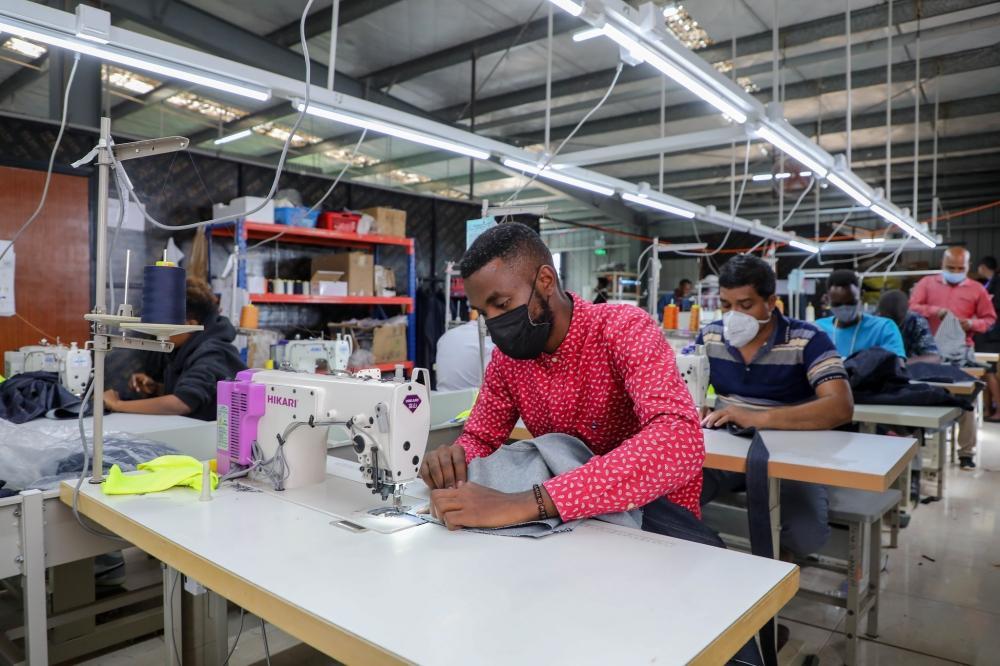Liliane Gikundiro
Africa-Press – Rwanda. Just like me, you might find it relatable to realize that there isn’t an original Kinyarwanda word that directly translates to “unemployment.” Did you even know that the famous term ubushomeri was borrowed from the French word, chômage, meaning unemployment? Over time, it was customized and adopted in Kinyarwanda as ubushomeri with the equivalent verb, gushoma, meaning to be unemployed.
And what does this tell us about Rwanda and our culture?
In pre-colonial Rwandan society, the concept of unemployment simply didn’t exist. People were always engaged in something. Farming, fetching water, cooking, herding, trading, or crafting. Life revolved around contribution. Not engaging in any activity that meant being useless; hence, words like imburamukoro or imburamumaro, which unneutrally describe someone without purpose or unproductive, respectively. Even today, Rwandan culture carries the expectation that one should be engaged in useful activities at least for oneself.
Work, in its many forms, wasn’t just about survival; it was about being someone of value. Every person contributed in one way or another, and contributions were deeply tied to dignity. That was the regular rhythm of life.
Today, that rhythm seems to be fading. In its foreign form, the term “unemployment” has found shelter in the modern Rwanda and its youths, not always because there is no work, but because there’s no work they approve of. Many wear it as a label, waiting for something good enough to match their pride or education. The culture of purpose that once drove our people to do something has slowly been replaced by hesitation, fear, and pride.
Somewhere along the line, we started believing we are too educated, too experienced, or too important to start small. We dream of clean offices, not dusty fields. We want titles, not sweat. But we forget that pride doesn’t pay bills.
Imagine someone who once owned a thriving shop or held a respected job but suddenly lost it all. Instead of starting small again — selling from home, taking a corner in someone’s shop, or trying something new — they wait, paralyzed by pride. “What will people think?” becomes the silent question that kills every chance to rebuild. And while they wait, discouragement and frustration accumulate.
The truth is that most people aren’t stuck because of the economy or lack of luck. They’re stuck because of fear and pride. Fear of judgment. Fear of looking small. Fear of being seen as “less.” Yet the real loss isn’t starting small; it’s refusing to start at all.
Killing pride doesn’t mean losing self-respect. It means choosing growth over ego. What if we normalized asking for help without shame? And learning from anyone doing better, even if they’re younger or less educated? Taking the small gig, the short contract, the humble opportunity? I am surely for these loud YESes to taking action. If it moves you forward, it’s not small.
The real measure of success isn’t how much praise or publicity you have, but how willing you are to walk through any open door, no matter how small. Every great business or career you admire began with a humble start. That 500-franc sale matters. That one customer matters. Those small, consistent steps are what build and rebuild greatness.
Maybe Rwanda never had a word for unemployment because Rwandans always found something to do. Maybe the language can still teach us something we’ve forgotten — that being useful and persistent has always been the real job, the true purpose in being Rwandan.
It’s time we return to that culture — a culture where purpose defines us more than pride, where usefulness is honour, and where no work is too small to be meaningful.
Source: The New Times
For More News And Analysis About Rwanda Follow Africa-Press






